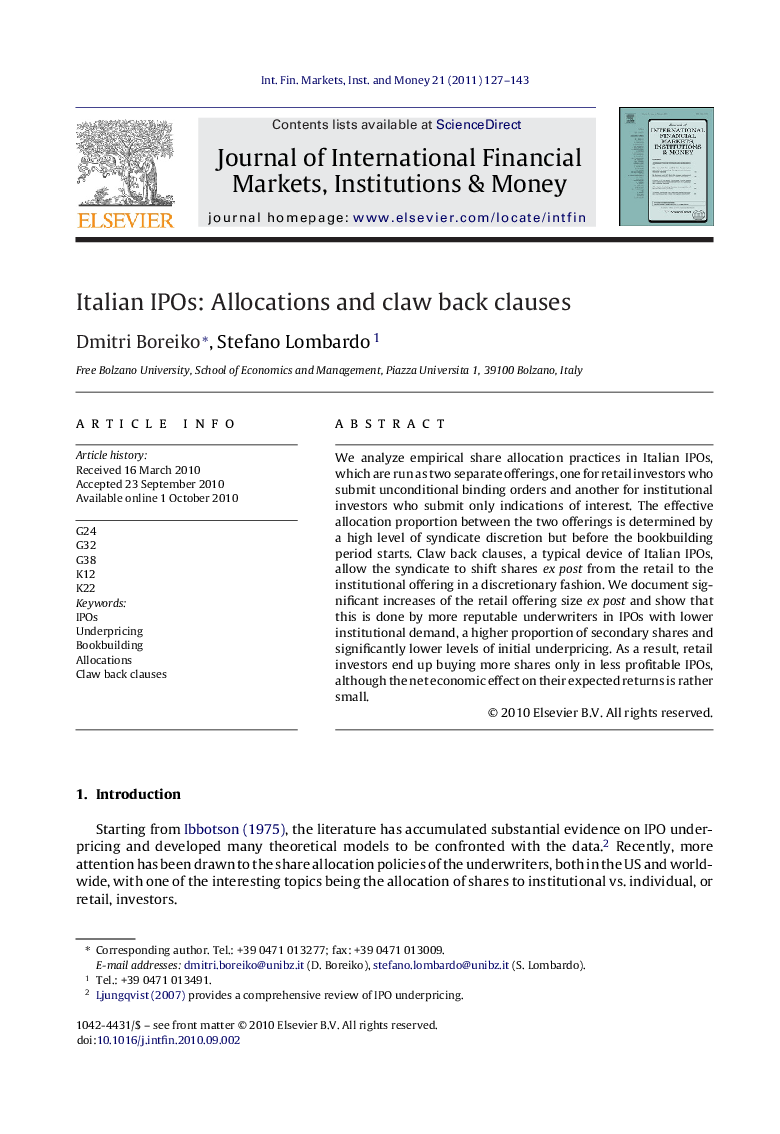| Article ID | Journal | Published Year | Pages | File Type |
|---|---|---|---|---|
| 964243 | Journal of International Financial Markets, Institutions and Money | 2011 | 17 Pages |
We analyze empirical share allocation practices in Italian IPOs, which are run as two separate offerings, one for retail investors who submit unconditional binding orders and another for institutional investors who submit only indications of interest. The effective allocation proportion between the two offerings is determined by a high level of syndicate discretion but before the bookbuilding period starts. Claw back clauses, a typical device of Italian IPOs, allow the syndicate to shift shares ex post from the retail to the institutional offering in a discretionary fashion. We document significant increases of the retail offering size ex post and show that this is done by more reputable underwriters in IPOs with lower institutional demand, a higher proportion of secondary shares and significantly lower levels of initial underpricing. As a result, retail investors end up buying more shares only in less profitable IPOs, although the net economic effect on their expected returns is rather small.
